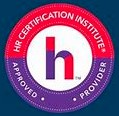2023 EEOC & Employers: Investigating Claims of Harassment & Discrimination
Duration : 90 Minutes

This course, has been approved for 1.5 HR (General) recertification credit hours toward aPHR™, PHR®, PHRca®, SPHR®, GPHR®, PHRi™ and SPHRi™ recertification through HR Certification Institute® (HRCI®).
Diane L. Dee, SPHR, SHRM-SCP,
Diane L. Dee, President and Founder of Advantage HR Consulting, LLC is a senior Human Resources professional with over 30 years of experience in the HR arena. Diane’s background includes experience in HR consulting and training & administration in corporate, government, consulting and pro bono environments.
Organizations have legal and moral responsibilities to support diversity in their workplaces and to ensure compliance with all equal employment opportunity rules and regulations. Unfortunately, workplaces have not always been welcoming to women and minorities, and many people have faced prejudicial behavior when seeking employment or while on the job.
While laws like the Civil Rights Act of 1964 have improved the working lives of many, there are still serious issues that require attention and action. Human Resource professionals are especially important for creating hospitable and inclusive work environments.
Policies that discriminate against protected classes of individuals, either explicitly or accidentally, are illegal. Thus, even unintentionally discriminatory practices that disparately impact those that are vulnerable to prejudicial treatment must be prevented.
Course Objectives:
Investigating an employee’s claim of discrimination or harassment requires immediate action on the part of employers to satisfy the recommendations of the Equal Employment Opportunity Commission (EEOC). The EEOC strongly recommends that employers swiftly investigate and resolve employees’ complaints of workplace harassment and discrimination. If an employee lodges a complaint against a colleague or the employer itself, an investigation is a required step since courts have ruled that failure to investigate on the part of an employer is akin to discrimination.
Responsiveness to a complaint and an investigation will not only yield the best information and evidence, but it will also enhance both the investigators and employer’s credibility. Investigations can help the organization identify and resolve internal problems before they become widespread. Given that every complaint has the potential to become a lawsuit, employers should investigate every case in a manner in which it can be presented to a court of law, if necessary. As potentially disruptive as investigations can be, they must be prompt, thorough and effective to ensure all parties’ protection.
Course Outline:
• Functions of the EEOC
• Federal legislation requiring equal treatment of employees
• Title VII of the Civil Rights Act of 1964: Original protected classes and currently acknowledged protected classes; Amendments to Title VII in 1991 and 2020
• Disparate treatment v. disparate impact
• Various forms of harassment & applicable court cases
• How is sexual harassment defined?
• What harassment is NOT
• Quid-Pro-Quo harassment and Hostile Work Environments
• Best Practices for avoiding claims of sexual harassment
• Determining is the harassment is severe or pervasive
• Sexual harassment red flags
• Process of filing a charge with the EEOC
• Common reasons employees state for not filing a claim
• Charges of retaliation and discrimination
• Formal complaints and the investigative process
• Process for employees to follow when filing a charge of discrimination with the EEOC and State/Local Agencies
• What employers can expect once a charge is filed
• Conciliation process
• New legislation regarding forced arbitration: Ending Forced Arbitration of Sexual Assault and Sexual Harassment Act of 2021
• Mediation process
• EEOC determinations
• Front Pay in lieu of job reinstatement
• EEOC penalties levied against employers
• Tips when dealing with the EEOC
• Affirmative Action programs
• The cost of non-compliance
What You Get:
• Training Materials
• Live Q&A Session with our Expert
• Participation Certificate
• Access to Signup Community (Optional)
• Reward Points
Who Should Attend:
• Business Owners
• Senior Management
• Human Resources professionals
• Compliance professionals
• Operations Managers
• Project Managers
• Team Leaders
• Managers & Supervisors
• Talent Development Professionals
Please reach us at 1-888-844-8963 for any further assistance or if you wish to register

100% MONEY BACK GUARANTEED
Refund / Cancellation policyGet In Touch
Similar Trainings
Linking Pay to Performance: Increasing Employee Engagement & Organizational Performance
LIVE : Scheduled on
03-April-2025 :01:00 PM EST
|
